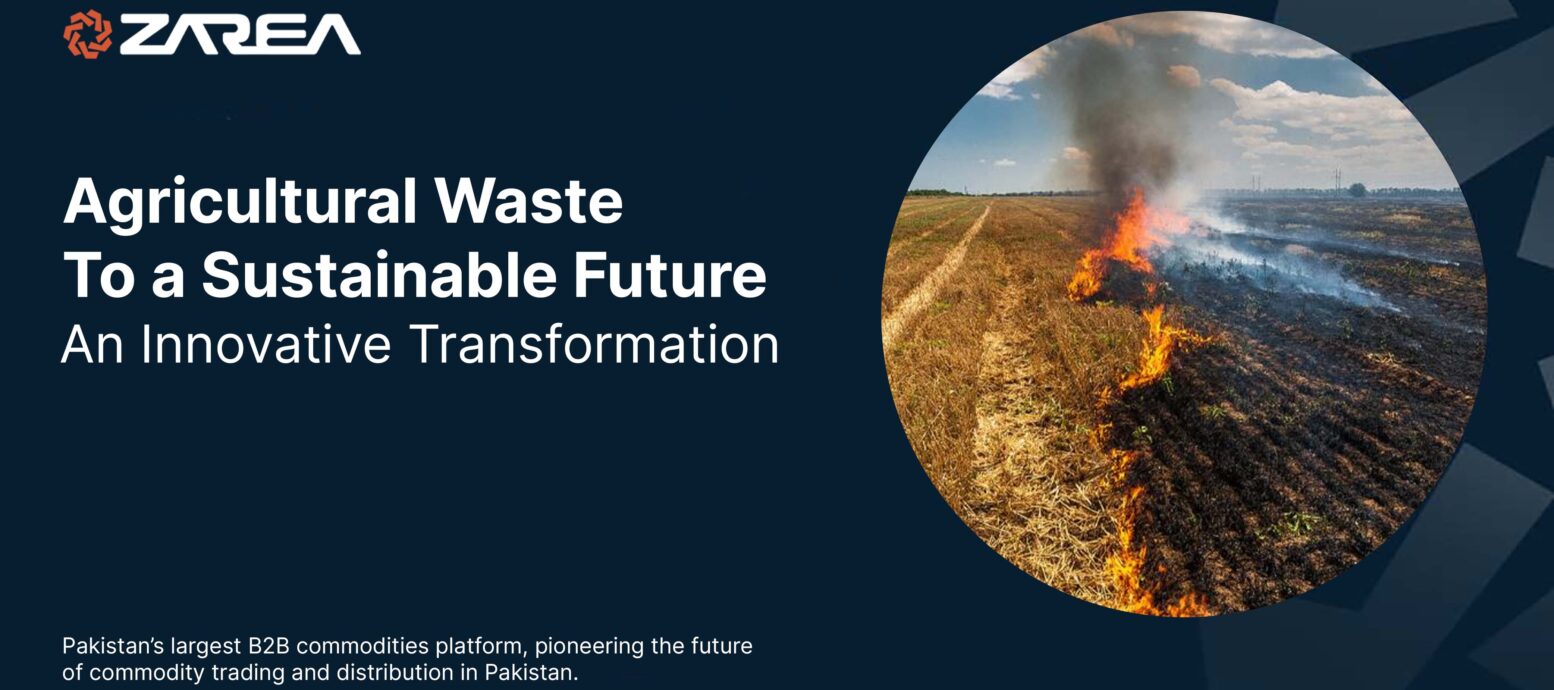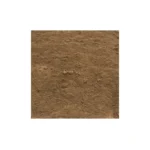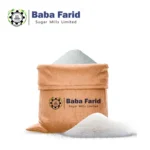Introduction – Agricultural Waste:
The agriculture industry is feeding the people of the world while generating heaps of agricultural waste. For some people, it is merely waste with no potential for anything; therefore, they are utilizing environmentally hazardous practices like burning and landfilling to dispose of agricultural waste. Zarea Limited endorses safe and sustainable practices for a greener and safer future and, therefore, educates the people to responsibly manage the “potential-rich” agricultural waste. This blog will explore the impact of agricultural waste on the environment and simultaneously how this waste has the potential to create a sustainable future for our generations.
What is Agricultural Waste?
Agricultural waste like crop residue and manure pose a great challenge in terms of waste management. This agricultural waste is discarded by burning it which makes the air even more polluted than it already is. Addressing and decomposing the agricultural waste mindfully is the only way forward as we cannot afford to accumulate any more pollutants at this point. What we need is, a paradigm shift so we can turn agricultural waste into value-added products and sustainable energy resources.
Impact of Agricultural Waste:
Agricultural waste management in Pakistan has contributed to enhancing the intensity of carbon footprints and environmental damage. Pakistan was ranked the second most polluted country in the world in 2023, with a major portion of pollution coming from stubble burning. Land, water, and air pollution has always been prominent in Pakistan causing unfathomable amount of diseases and issues for the citizens. All these unsafe practices subsequently become the reason for climate change.
Transformation of Agricultural Waste into Sustainable Sources:
Agricultural wastes turned into sustainable products can open doors for numerous opportunities; it can help reduce environmental impacts, produce green energy to replace fossil fuel consumption and contribute to the economy of Pakistan. Zarea Limited strives to focus on promoting a safe and green Pakistan, providing you with high-quality agricultural biomass at affordable rates that fulfill your business needs. We provide top-notch Rice Husk, Red and White Corn Cobs, Sugarcane Bagasse, and Wheat Straws at Zarea Limited.
Now let’s dive into the nuances of this innovative transformation:
Agricultural Waste ====> Biofuels
The residue from agricultural waste can be transformed into green and safe biofuels that can replace non-renewable resources like petrol and diesel through the process of pyrolysis and biomass gasification. Biofuels like Ethanol and Biodiesel are among the sustainable resources that can be produced through the fermentation of sugarcane bagasse and corn cobs. These biofuels can be a safer alternative and are an ideal raw material for making further derivatives.
Agricultural Waste ====> Biogas and Biofertilizers
Biogas is another sustainable resource we can derive from the transformation of agricultural waste by anaerobic digestion of sugarcane bagasse, corn cobs, and wheat straws. Anaerobic Co-digestion is another process through which biogas and biofertilizers can be derived simultaneously. The by-product of this process can be further utilized as a soil amendment agent.
Agricultural Waste ====> Biochar
Biochar is made through the thermal decomposition of agricultural biomass in the absence of oxygen i.e. Pyrolysis. Biochar is used as a wastewater treatment agent, and soil amendment agent, helps in soil moisture retention, and nutrient management, and it also helps in regulating the natural carbon cycle. Moreover, it can be incorporated into construction materials like concrete and asphalt to minimize the carbon footprint.
Agricultural Waste ====> Bioplastic and Mulch Films
Agricultural waste like corn cobs can be fermented to produce polylactic acid which is a precursor for biodegradable plastics that can be a safer substitute for plastic. Rice husk and bagasse can also be processed to form cellulose-based. Moreover, the residue can also be transformed into a sustainable alternative to mulch films as well.
Agricultural Waste ====> Paper Pulp
Agricultural residue can be used in the production of paper products that are sustainable substitutes for wood pulp. This renewable resource can be used in making packaging and other paper products.
Agricultural Waste ====> Bio-based Textiles
Bio-based synthetic fiber can be transformed from agricultural waste which is a sustainable alternative to the traditional chemical-based fibers.
Biomass System – A Hub for Circular Economy Integration:
Biomass systems and their by-products generate various value-added products for many industries and contribute to building a sustainable future. The circular economy is generated via energy and resources that are derived from the biomass system. Therefore, Zarea Limited emphasizes utilizing these organic wonders into something mindful and safe to promote a greener Pakistan that we all need today!

































